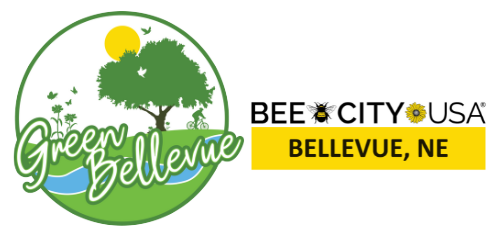Let’s Get involved and Help the Pollinators by Nancy Scott
Pollinators Are in Trouble
You have probably heard that bee and butterfly populations are declining. Bat numbers are in decline. Birds, who feed their babies primarily caterpillars, are disappearing. These and other animals face many serious challenges in our modern world.
Habitat loss, diseases and parasites, along with environmental contaminants, have contributed to the serious decline of many species of pollinators and the plants and other animals that depend upon their survival.
Additionally, bees and other pollinators, like bees, butterflies and moths, birds and bats and beetles and other insects play a critical role in our own food production. Three-fourths of the worlds flowering plants depend on pollinators to reproduce. Most fruit, vegetable, seed crops and other plants that provide fiber, medicines and fuel are pollinated by animals. Over 100 crops in the United States rely on pollinators. Honeybees, a foreign livestock species, is America’s primary commercial pollinator, although in the United States there are over 3600 species of native bees.
When pollinators are unable to fine the right quantity and quality of nectar and pollen from blooming plants, they are unable to survive. There are just not enough pollinator friendly plantings to support pollinators.
Good News in Bellevue!
In 2021 Bellevue, Nebraska became the first and so far, the only city in Nebraska to be designated a Bee City USA affiliate.
Bee City USA is an initiative of the Xerces society, and they provide a frame work of communities to work together to conserve native pollinators by increasing the abundance of native plants, providing nesting sites and reducing the use of pesticides.
Bee City USA affiliates make commitments to conserve native pollinators, laid out in a resolution adopted by the local city council. City staff and community members work together to carry out these commitments and make their city a better place for pollinators. Incorporated cities, towns, counties, and communities across the United States are invited to make these commitments and become Bee City USA affiliates.
Since the Bee City designation, Green Bellevue volunteers have worked to create and have encouraged the city to adopt an integrated pest management (IPM) plan designed to prevent pest problems, reduce pesticide use, and expand the use of non-chemical pest management methods.
Volunteers have helped to begin creating pollinator gardens in public spaces like the library, schools and parks.
Plans are in the works to procure signs for city entrances announcing Bellevue as a Bee City USA.
The Next Step is You
Being a Bee City USA involves more than just city employees working on and implementing plans to make community spaces more pollinator friendly. We need the help and support of the public.
Volunteers are working on a pledge gardeners may take to commit that they will provide safe habitats for pollinators. When people sign the pledge, they will then have an opportunity to purchase a sign to place in their yard to share with others that they are part of the Bellevue Bee City USA movement to protect our precious pollinators. Volunteers are working on a design for the sign.
One of the commitments is to grow at least 2 species of plants that bloom in each of the warm seasons, Spring, Summer and Fall because various species are more active at different times during the growing season. With a diverse range of plant species, more pollinators are helped by our gardens.
Volunteers are working on a list of plants to help you choose plants that bloom at different times.
Green Bellevue volunteers has a booth at the Bellevue Farmers Market each Saturday from 8:00-12:00. We will have a selection of plants to give away for a free will donation that helps provide pollinator plants for people to help the pollinators. Our partners will join us occasionally with a popup booth so stay tuned to our social media.
What is a Bee City USA
The United States is home to over 3,600 native bee species, as well as introduced species such as the honeybee. Bees are very effective pollinators.
In recent decades, bee populations have been in steep decline due to habitat loss and the widespread use of pesticides; up to 40% of pollinator species are at risk of extinction due to human impacts.
Cities across the United States are becoming Bee City USA affiliates. Bee City USA affiliates pledge to conserve native pollinators by increasing native plants, providing nesting sites, and reducing the use of pesticides.
Take the Bellevue Bee City Pollinator Protector Pledge
When we protect native bees, other native pollinators benefit.
Whether you own your own home or rent; all residents are invited to increase bee habitat through planting native plants. Even a window box, balcony garden or large pot with native flowering plants makes a difference.
Say Yes to doing your best to maintain your land to protect and promote the health of pollinators, including bees, butterflies, birds, etc. by caring for our local ecosystem!
